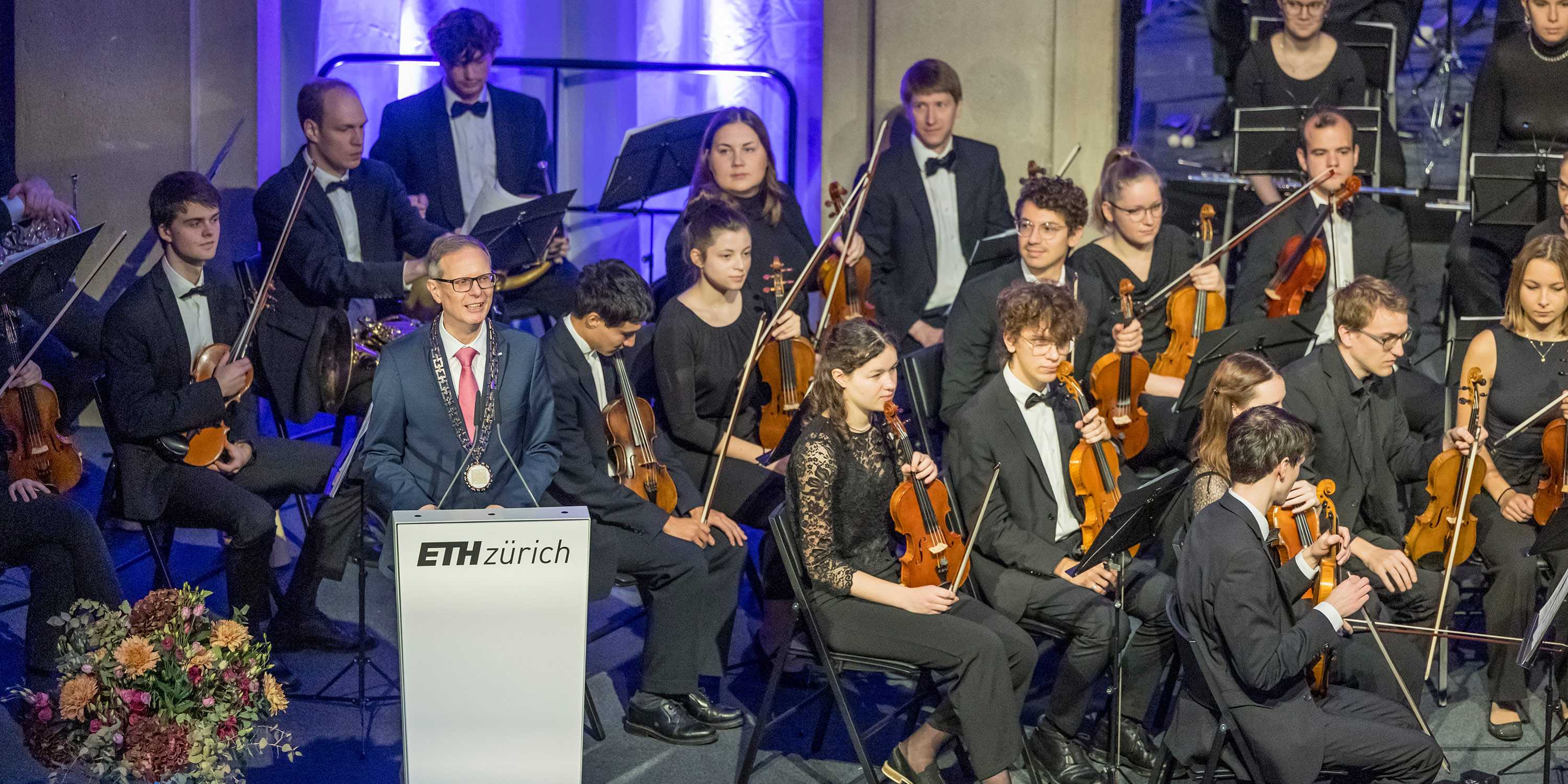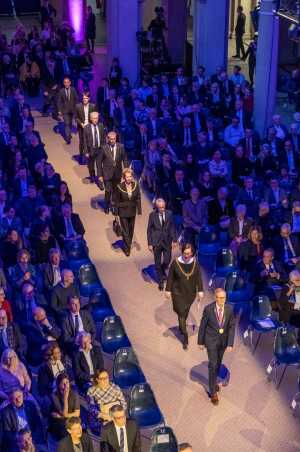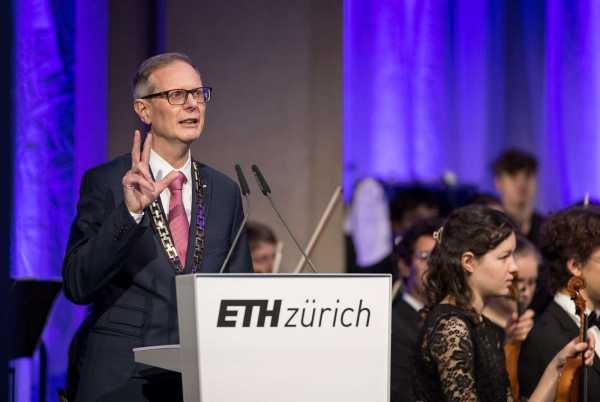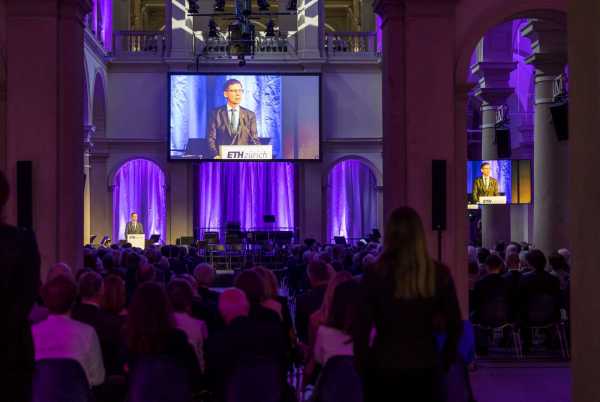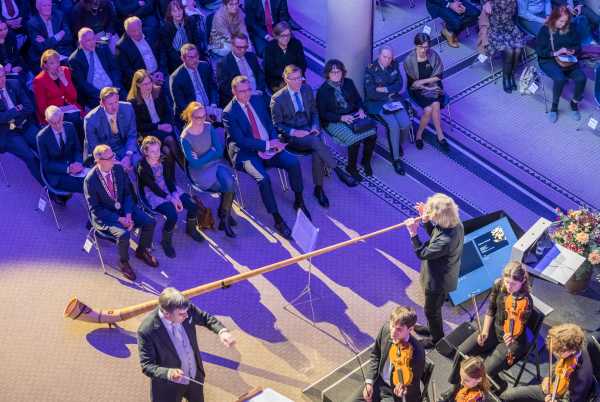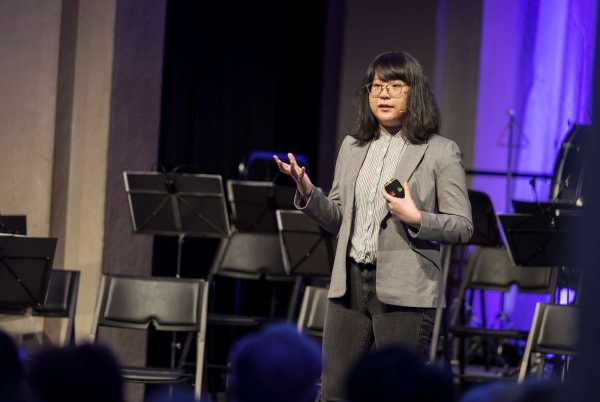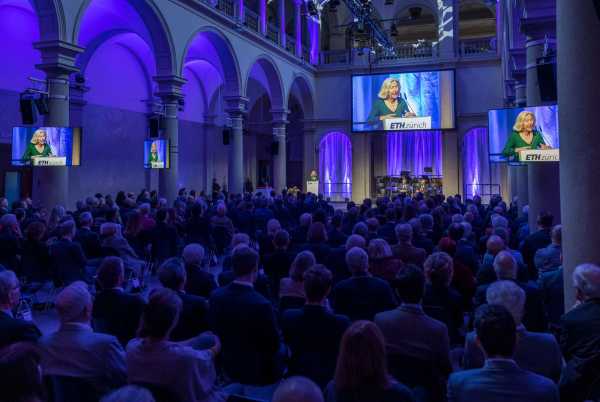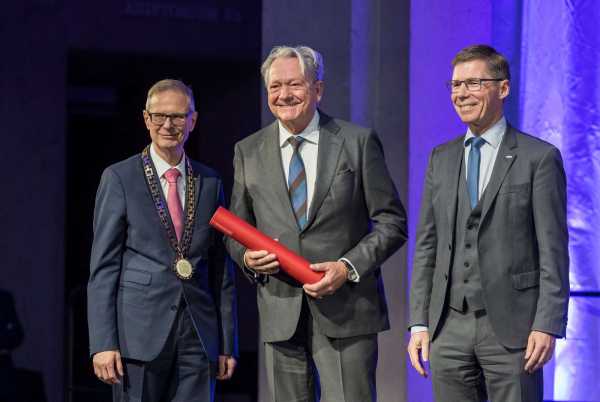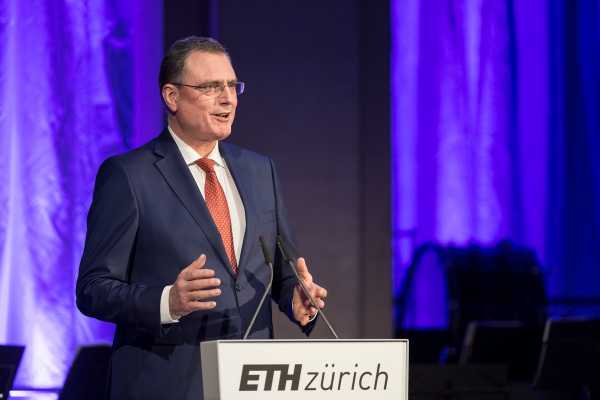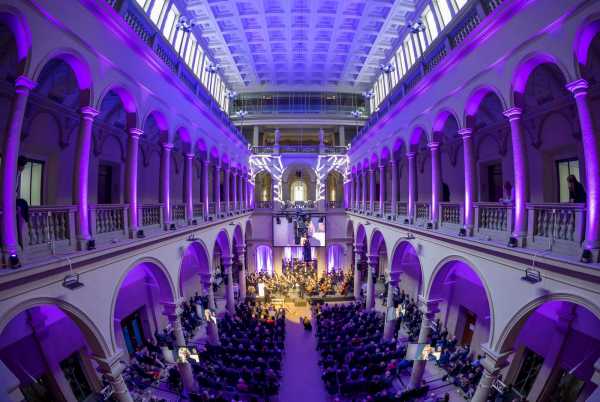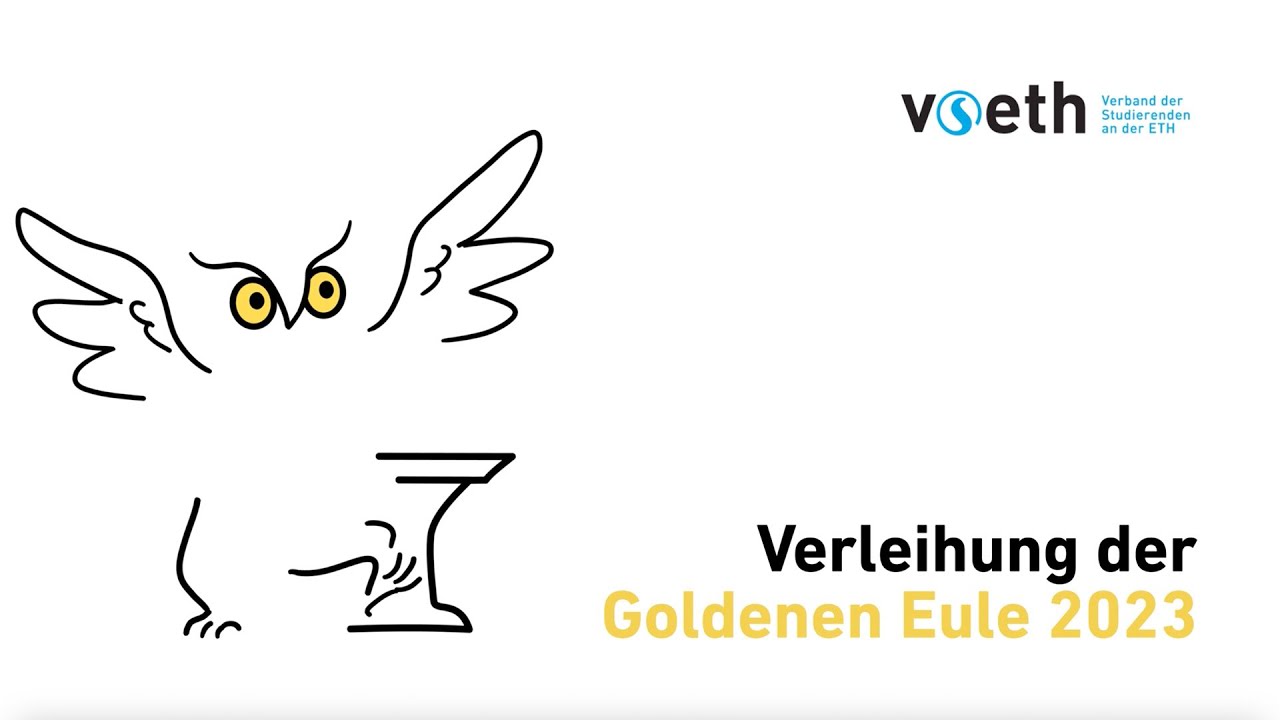On 18 November, ETH Zurich celebrated its 168th anniversary in the presence of high-profile guests from the worlds of science, business and politics. This Saturday morning, ETH President Joël Mesot talked about how ETH Zurich contributes to a more resilient society through its teaching, research and knowledge transfer. “Much of what is devised, discovered and put to use in our 16 departments helps Switzerland and the world optimise its response to crises and system failures.” As concrete examples, Joël Mesot pointed to the coalition for green energy and energy storage which was launched with industry partners this year, and to the SCION network developed by ETH researchers in the interests of more secure internet communications. Ensuring that the institution itself remains resilient, he added, requires trust, networks and reliable funding of the university.
Insights instead of knowledge
“Our challenges, our crises are international. And that’s what education should – indeed, must – be too,” said Günther Dissertori, Rector of ETH Zurich. That’s why, he continued, it is important to maintain close dialogue with other European universities – and why ETH joined the European university network ENHANCE around a year ago.
Dissertori also announced a major reform project for restructuring the academic calendar and the examination system to give students greater freedom to organise their time. He also believes it is important to allow greater scope in course content. “Our job is to educate people who can solve the problems of tomorrow,” said Dissertori, commenting that these problems – such as climate change – are highly complex and to an extent interdependent. He further noted that this demands a greater degree of networked thinking from students than ever before. “Rather than ‘more knowledge’, we need to focus on ‘greater insights’,” said Dissertori.
Independence is key to research and monetary policy
This year’s ceremonial address was given by Thomas Jordan, Chair of the Governing Board of the Swiss National Bank (SNB). The SNB and ETH are not only bound by joint projects and the KOF Swiss Economic Institute, they also have numerous parallels, as Jordan indicated. They both create key preconditions for growth and prosperity in Switzerland and remain extremely flexible in their response to a rapidly changing environment – whether it’s a pandemic or a crisis at a major bank. “Without independence, there is no free research nor monetary policy that is shielded from vested interests,” said Jordan. He added that it is important to maintain this wide scope of action but also a sense of humility and critical self-scrutiny.
